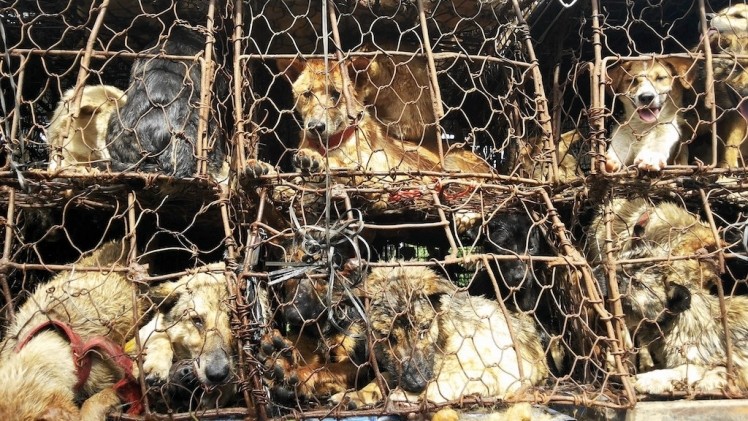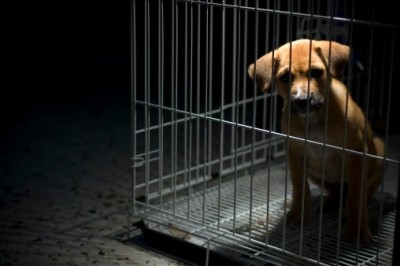Dog days for canine meat traders amid changing Chinese attitudes

Yet polls have shown that most citizens want to see an end to the festival, believing it tarnishes China’s image. So why is it always so packed?
Contrary to widespread opinion, there is little appetite among Han Chinese for consuming dog meat, though the practice is not taboo as it is in the West. Only China’s ethnic Korean minority eat dog regularly, while the Han see it more as a traditional medicine to regulate core temperature. Indeed, the Yulin festival coincides with the height of summer, at a time when dog meat is said to cool the body.
A study conducted by Chinese polling company Horizon last year for a local animal rights organisation found that almost two-thirds of respondents supported an end to the Yulin festival, and nearly 52% wanted the dog meat trade to be completely banned in China. A further 70% claimed never to have eaten dog meat, while many of the remaining 30% had eaten it only when pressed by hosts.
The poll came months after 8m Chinese voted online to support a legislative proposal to ban the dog meat trade in China by National People’s Congress deputy Zheng Xiaohe. This was soon backed up by an 11m-signature international petition that was submitted to lawmakers in Beijing.
“The vibrant campaign to end the Yulin dog meat festival is rooted in Chinese opposition to the event, supported by people from around the world who agree that this cruel trade must not be tolerated,” said Qin Xiaona, director of the Capital Animal Welfare Association.
Qin claimed that it was “embarrassing” to the nation that the world believed that the Yulin festival was part of Chinese culture.
“It isn’t and… most people here don’t eat dogs, and believe that the festival damages China’s global reputation,” she added.
Over recent years, as calls to end the Yulin event have gained momentum, local governments have responded by disassociating themselves from dog-eating festivals. In 2011, officials banned the popular Jinhua Hutou dog meat festival, and in 2014 Yulin’s local government closed several markets and slaughterhouses, and banned officials from eating dog meat at local restaurants.
According to The Economist, the reason why Yulin remains so popular is because “dog meat, a bit like drugs, has become a lucrative source of criminal income”.
Established only in 2010 by dog meat traders, most of the animals consumed at the festival have been procured by middlemen who pay hunters to kill dogs with poisoned arrows for around RMB10 (US$1.47) per kilogram of meat.
These hunters travel from village to village picking off any dog they can find, to the point that some settlements have reported a drop of as much as one-third of their dog populations.
China’s attitudes, meanwhile, have been changing towards domestic animals. In major cities like Beijing, the number of dogs registered as pets has been growing at a rate of 25% per year over the last decade. At the same time, animal welfare is becoming more of a priority in urban areas, at odds with opinions in the hinterland.
As China continues its development path, which has so far been most evident in the middle-class cities and less in villages, it is likely that attitudes towards dog hunting will change across the country.
As rural Chinese become more attached to their dogs, demand for their meat will tumble and hunters will lose interest. By this point, now-popular festivals like the one in Yulin will probably be consigned to the doghouse.














